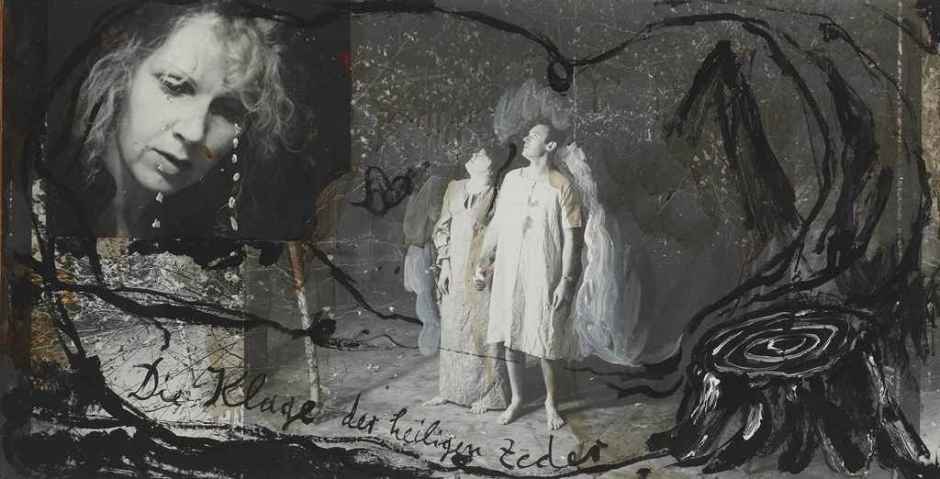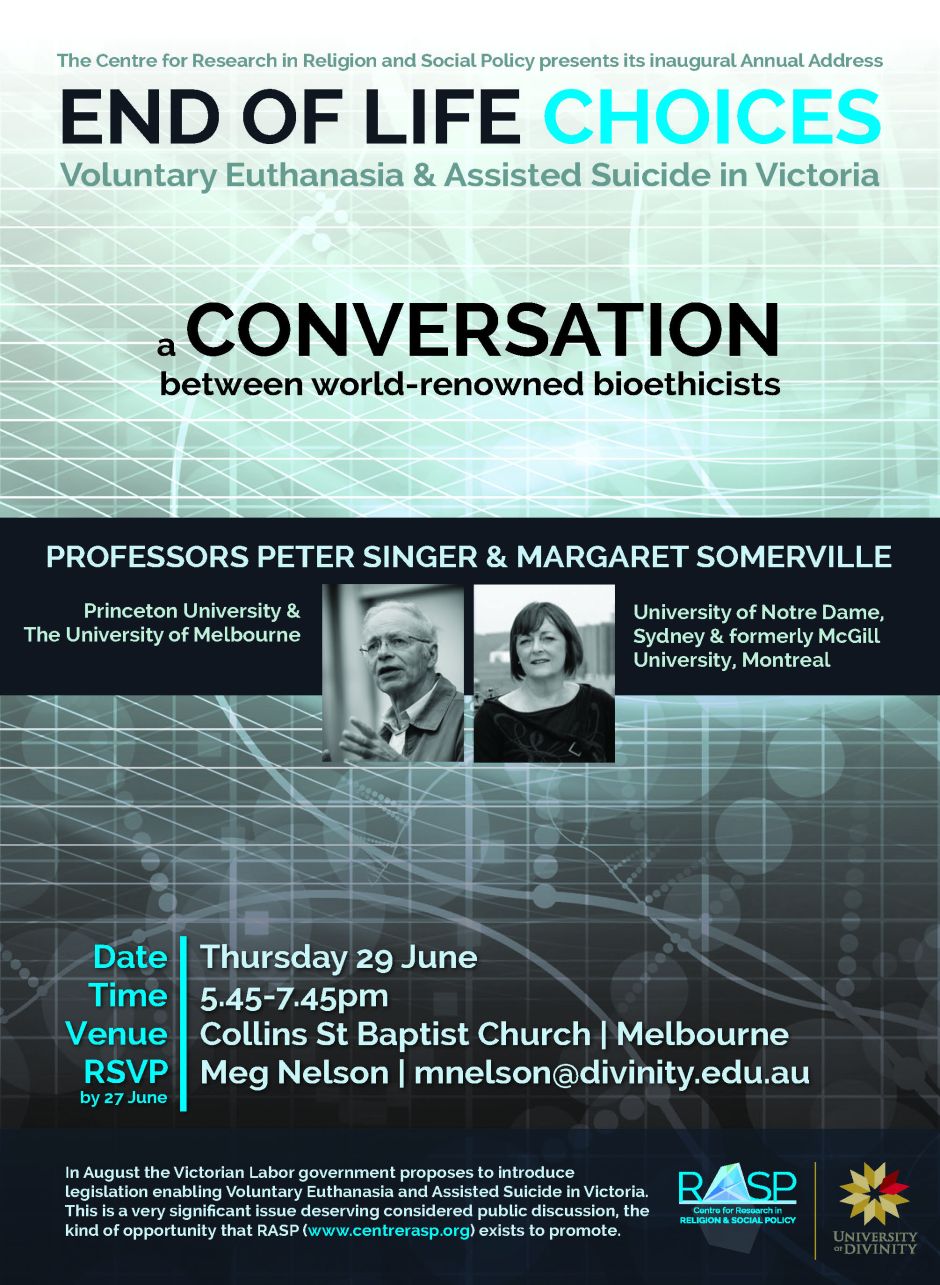‘People clearly do not need [pastors and theologians] to live. But it seems like they want to use us to die; their entire lives stand in the shadow of death. History marches along at its pace without us, but when the eschatological, the final things, appear on their horizons – and which problems in history do not ride the wave of the final things? – we apparently ought to be there and have open and decisive words to say. They are for the most part well adjusted in themselves and their own capacities and life possibilities. But amazingly, when it comes to the state of the gossamer upon which the entire net of this life hangs, when it comes to the razor-sharp ridge between time and eternity along which they suddenly find themselves wandering, after having long forgotten it, they want to hear from us. The theological problem comes into being on the boundaries of humanity. The philosophers know this, but quite often, it appears that we theologians do not’. – Karl Barth, ‘The Word of God as the Task of Theology, 1922’, in The Word of God and Theology (London: T&T Clark, 2011), 178.
I thought I’d start to put together in one place a list of resources that I have found helpful and that might serve as a resource to guide the church in its responses to the challenges posed by Euthanasia/Voluntary Assisted Dying. The list is by no means exhaustive, but hopefully it will be constructive. I intend to keep editing it as other resources become known to me. Suggestions welcome.
Theological Resources
- Allison Jr., Dale C. Night Comes: Death, Imagination, and the Last Things. Grand Rapids: Wm. B. Eerdmans, 2016.
- Anderson, Ray S. Theology, Death and Dying. Oxford: Basil Blackwell, 1986.
- Badham, Paul. ‘A Theological Examination of the Case for Euthanasia’, In Facing Death: An Interdisciplinary Approach, edited by Paul Badham, and Paul Ballard, 101–16. Cardiff: University of Wales Press, 1996.
- Banner, Michael. ‘Christian Anthropology at the Beginning and End of Life’, In Christian Ethics and Contemporary Moral Problems, 47–85. Cambridge: Cambridge University Press, 1999.
- ––––––––––. ‘Scripts for Modern Dying: The Death before Death We Have Invented, the Death before Death We Fear and Some Take Too Literally, and the Death before Death Christians Believe in’. Studies in Christian Ethics 29, no. 3 (2016): 249–55.
- Barth, Karl. Church Dogmatics III.4. Translated by A. T. Mackay, T. H. L. Parker, Harold Knight, H. A. Kennedy, and J. Marks. Edinburgh: T&T Clark, 1961.
- Bonhoeffer, Dietrich. Ethics. Translated by Reinhard Krauss, Charles C. West, and Douglas W. Scott. Dietrich Bonhoeffer Works, Vol. 6. Minneapolis: Fortress Press, 2005.
- Catholic Church. Catechism of the Catholic Church. Homebush: Society of St Pauls, 1994.
- Duff, Nancy J. Making Faithful Decisions at the End of Life Paperback. Louisville: Westminster John Knox Press, 2018.
- Dutney, Andrew. ‘Christian Support for Voluntary Euthanasia’. Monash Bioethics Review 16, no. 2 (1997 April): 15–22.
- Fiddes, Paul S. ‘Acceptance and Resistance in a Theology of Death’, Modern Believing 56, no. 2 (2015): 223–36.
- ––––––––––. ‘The Living God and the Threat of Death’, In Participating in God: A Pastoral Doctrine of the Trinity, 224–50. London: Darton Longman & Todd, 2000.
- Goroncy, Jason A. ‘Dying Without a Script: Some Theological Reflections on Voluntary Assisted Dying’. Colloquium 51, no. 1 (2019): 23–37.
- ––––––––––. ‘Euthanasia: Some Theological Considerations for Living Responsibly’. Pacifica 29, no. 3 (2016): 221–43.
- Gustafson, James M. ‘Suicide’, In Ethics from a Theocentric Perspective, Volume 2: Ethics and Theology, 187–216. Chicago: The University of Chicago Press, 1984.
- Hauerwas, Stanley. Naming the Silences: God, Medicine, and the Problem of Suffering. London: T&T Clark, 2004.
- ––––––––––. ‘Rational Suicide and Reasons for Living’, In On Moral Medicine: Theological Perspectives in Medical Ethics, edited by Stephen E. Lammers, and Allen Verhey, 461–66. Grand Rapids: Wm. B. Eerdmans, 1987.
- Jenson, Robert W. ‘Thinking Death’, in On Thinking the Human: Resolutions of Difficult Notions, 1–15. Grand Rapids/Cambridge: Wm. B. Eerdmans, 2003.
- John Paul II. ‘Declaration on Euthanasia: The Sacred Congregation for the Doctrine of the Faith, May 5, 1980’.
- ––––––––––. ‘Evangelium Vitae’.
- ––––––––––. The Theology of the Body: Human Love in the Divine Plan. Boston: Pauline Books & Media, 1997.
- Jüngel, Eberhard. Death: The Riddle and the Mystery. Translated by Iain Nicol, and Ute Nicol. Edinburgh: The Saint Andrew Press, 1975.
- Küng, Hans. ‘Assisted Dying – Also Active?’, in Eternal Life?: Life After Death as a Medical, Philosophical, and Theological Problem, trans. Edward Quinn, 209–13. London: Collins, 1984.
- Küng, Hans, and Walter Jens. A Dignified Dying: A Plea for Personal Responsibility. Translated by John Bowden. London: SCM Press, 1995.
- Lewis, Alan E. ‘The Theology of Death and the Care of the Dying: Affirmations, Attitudes and Actions’. Theology in Scotland 2, no. 2 (1994): 7–20.
- Messer, Neil. Respecting Life: Theology and Bioethics. London: SCM Press, 2011.
- Rahner, Karl. On the Theology of Death. Translated by Charles H. Henkey. Frieburg: Herder, 1961.
- Stoneking, Carole Bailey. ‘Receiving Communion: Euthanasia, Suicide, and Letting Die’, In The Blackwell Companion to Christian Ethics, edited by Stanley Hauerwas, and Samuel Wells, 375–87. Malden: Blackwell Publishing, 2004.
- Sutherland, D. Dixon. ‘From Terri Schiavo toward a Theology of Dying’, In Resurrection and Responsibility: Essays on Theology, Scripture, and Ethics in Honor of Thorwald Lorenzen, edited by Keith D. Dyer, and David J. Neville, 225–46. Eugene: Pickwick Publications, 2009.
- Swinton, John. Becoming Friends of Time: Disability, Timefullness, and Gentle Discipleship. Waco: Baylor University Press, 2016.
- Swinton, John, and Richard Payne, eds. Living Well and Dying Faithfully: Christian Practices for End-of-Life Care. Grand Rapids: Wm. B. Eerdmans, 2009.
- Williams, Rowan. ‘On Making Moral Decisions’. Anglican Theological Review 81, no. 2 (1999): 295–308.
Pastoral Resources
- Anderson, Ray S. ‘What Do I Say At the Graveside of a Suicide?’, In Dancing with Wolves While Feeding the Sheep: The Musings of a Maverick Theologian, 59–67. Eugene: Wipf & Stock, 2001.
- The Anglican Church of Canada. Care in Dying: A Consideration of the Practices of Euthanasia and Physician Assisted Suicide. Toronto: Anglican Book Centre, 1999.
- ––––––––––. In Sure and Certain Hope: Resources to Assist Pastoral and Theological Approaches to Physician Assisted Dying. Toronto: General Synod of the Anglican Church of Canada, 2018.
- ––––––––––. In Sure and Certain Hope: Resources to Assist Pastoral and Theological Approaches to Physician Assisted Dying: Study Guide. Toronto: General Synod of the Anglican Church of Canada, 2018.
- Banner, Michael. ‘Dying in the Lord? A Sermon Before the University: May 20th 2012, King’s College’. The Cambridge Humanities Review: A Journal of Literary and Intellectual Essays Easter Term, no. 1 (2012): 7–9.
- Epperly, Bruce G., and Mills, John. ‘A Word to the Church on End of A Word to the Church on End of Life Care: Life Care: Theological, Spiritual, and Ethical Reflections’. The United Church of Christ Science and Technology Taskforce, nd.
- Presbyterian Church (U.S.A.). In Life and in Death We Belong to God: Euthanasia, Assisted Suicide, and End-of Life Issues. Louisville: Christian Faith and Life Area, Congregational Ministries Division, PC (U.S.A.), 1995.
- Rahner, Karl. ‘Theological Considerations for the Moment of Death’, In Theological Investigations, Volume 11: Confrontations 1, 309–21. London: Darton, Longman & Todd, 1974.
- The United Church of Canada. Caring for the Dying: Choices and Decisions. Etobicoke: The United Church of Canada, 1995.
- United Church of Christ, and Julie R. Harley. Making End-Of-Life Decisions: United Church of Christ Perspectives. Cleveland: The UCC Council for Health and Human Services Ministries/The UCC Chaplains in Health Care, 1997.
Other Resources
- Duckett, Stephen. ‘Arguing in the Public Square: Christian Voices Against Assisted Dying in Victoria’. Journal for the Academic Study of Religion 30, no. 2 (2017): 165–87.
- Gleeson, Gerald. ‘Is it Always Good to be Alive?’. Interface: A Forum for Theology on the World 13, no. 1 & 2 (2010): 97–111
- Hitchcock, Karen. Dear Life: On Caring for the Elderly. Carlton: Black Inc., 2016.
- May, Arnd T. ‘Physician-Assisted Suicide, Euthanasia, and Christian Bioethics: Moral Controversy in Germany’. Christian Bioethics: Non-Ecumenical Studies in Medical Morality 9, no. 2/3 (2003 Aug-Dec): 273–83.
- Singer, Peter. Rethinking Life and Death: The Collapse of Our Traditional Ethics. Melbourne: The Text Publishing Company, 1994.
- ––––––––––. ‘Taking Life: Humans’. In Practical Ethics. 2nd ed., 175–217. Cambridge: Cambridge University Press, 1993.
- Stefan, Susan. Rational Suicide, Irrational Laws: Examining Current Approaches to Suicide in Policy and Law. New York: Oxford University Press, 2016.
- Tolstoy, Leo. ‘The Death of Ivan Ilyich’, in The Death of Ivan Ilyich and Other Stories, 39–91. New York: Alfred A. Knopf, 2009
- Waters, Brent P. ‘From Death as Necessity to Death as Choice’. Ethics, Medicine and Public Health 2, no. 3 (July–September 2016): 442–47.






 I am relieved to
I am relieved to